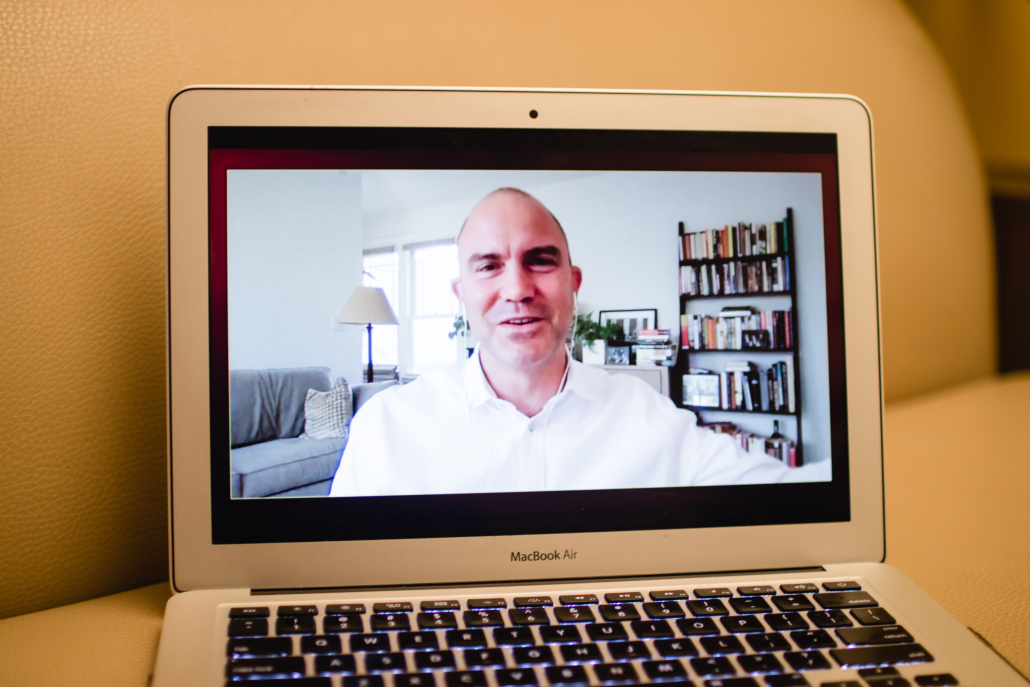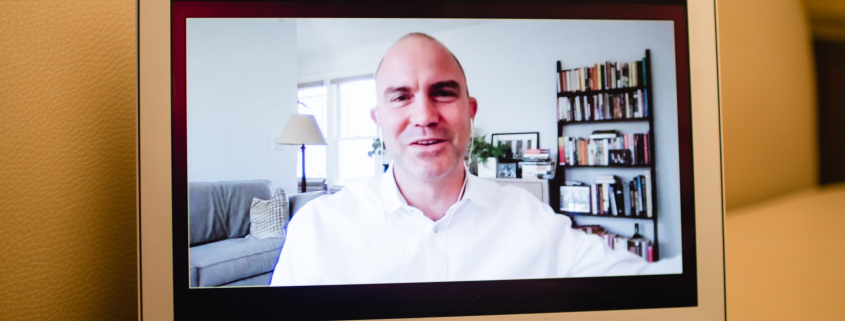Former Obama speechwriter discusses book

Ben Rhodes, former speechwriter and deputy national security advisor for former President Barack Obama, spoke Tuesday about threats to democracy around the world, the rise of authoritarianism in the United States and his new book “After the Fall: Being American in the World We’ve Made” in a Zoom event hosted by the Dornsife Center for the Political Future.
The talk, moderated by CPF co-directors Bob Shrum and Mike Murphy, was part of the Center’s “Bully Pulpit” podcast, which invites experts across the political spectrum and aims to embody CPF’s central mission to “respect each other and respect the truth.”
Following a discussion about politics in the U.S. today, Rhodes began the conversation by discussing the shift toward nationalist authoritarianism, a change represented during former President Donald Trump’s presidency. During that presidency, Rhodes said he personally felt threatened because of his political association with Democrats, having worked under Obama. He cited events such as Trump’s team sending private spies to look into Rhodes’s past and running online misinformation campaigns against him.
“We are drifting in a direction where being in the political opposition of, in particular the kind of Trumpian brand of Republican, is increasingly, not yet dangerous, but it is an early stage characteristic of what happens to people in semi-autocracies,” Rhodes said.
According to Rhodes, a central idea in his book is to understand the political climate in the U.S. by taking an outsider’s perspective. Rhodes said he believes the U.S. shifted from an example of democracy around the world to a force that discredits it, and autocratic countries such as Russia are able to take advantage of that. Rhodes said he feels the main reason Russian President Vladimir Putin wanted Trump to win the presidency is because it would lower the American democracy’s reputation around the globe.
“[Trump] is so obviously corrupt that any Russian cab driver on the street can look at that and think ‘Well if that guy gets to the top of American democracy, then why is democracy any better than what we have here,’” he said. “[Putin] wanted to show that democracy was hopelessly corrupt.”
Shifting his focus to Japan, Rhodes recalled a meeting he had with some Japanese business leaders in August 2017, around the time of the Unite The Right rally in Charlottesville, Va. Rhodes realized in that meeting that the impact of the U.S.’s democracy directly concerned Japanese business leaders more than the American economy.
“Almost every one of them asked me about Charlottesville, Trump and white supremacy,” Rhodes said. “I realized that, in a way, to them, the United States coming into [semi-autocracy] was far more dangerous, and mostly because [it hurt] every assumption that they made about how the world operated … We lost credibility and that hurt people who draw on our example.”
Regarding social media and authoritarianism, Rhodes mentioned China’s surveillance state, where all Chinese citizens are always monitored and need to be cautious when critical of the government or when following cultural norms.
“They’re deploying a massive artificial intelligence capacity to pick up on who’s trustworthy and who’s potentially untrustworthy. And if you say the wrong thing, or if you’re just insufficiently patriotic in your digital footprint, which is very vast today, maybe your kid won’t get into a good school, or maybe you won’t get a job,” Rhodes said. “So there’s this effort to deploy technology kind of holistically across the whole society to shape individual choices.”
Rhodes stressed the importance of governmental regulation on solving the issue of big data in America, and said that a key difference was that America’s data problems stem from corporations while China’s issues stem from their government having too much control over data.
“As a minimum, seeking to regulate social media and the development of new data mining technologies in ways that safeguard privacy that diminish conspiracy theory and the spread of hate speech,” Rhodes said. “that requires not the confrontation with the Chinese model but the fortification and strengthening of the Democratic alternative.”
Compared to the ideological struggle between communism versus capitalism in the 20th century, Rhodes said he believes there has been a shift from global ideological battles to individual countries focusing on nationalism.
“We’re back in the world of nationalist powers competing … and the immigration issue has been the most potent issue in motivating the nationalist fervor,” Rhodes said. “In Europe the [issue] is immigrant populations are changing the ethnically homogeneous feel of our nation states.”
Shrum said that Rhodes presented powerful descriptions of troubles going on around the world, such as in Hungary and Russia, and stressed the need for USC students to become politically involved.
“I thought the way [Rhodes] formulated Barack Obama[‘s] critique of America as a work in progress, with moments in our past you could be proud of but also moments in our past that you have to be honest about,” Shrum said. “You really have to care about democracy here and abroad, and you have to be active, you have to be involved, or you risk losing it.”
Shrum discussed how Rhodes explained in his book that his experiences investigating America’s mistakes only made him love the ideal of America even more, and he believes that increasing political involvement is one of the main ways to keep America’s founding promises and ideals.
“At the end of the day, I believe there are far more people that believe in the better story of an America that privileges equality than [don’t], but we all have to show up on the field,” Rhodes said.
Kambiz Akhavan, an executive director at CPF said Rhodes was a great choice for the talk because of his real world political experience.
“We wanted to create a bully pulpit for issues and for speakers who could model civil discourse and show that our differences are a source of strength,” Akhavan said. “It’s OK to disagree as long as we can be civil and work together towards common solutions.”

